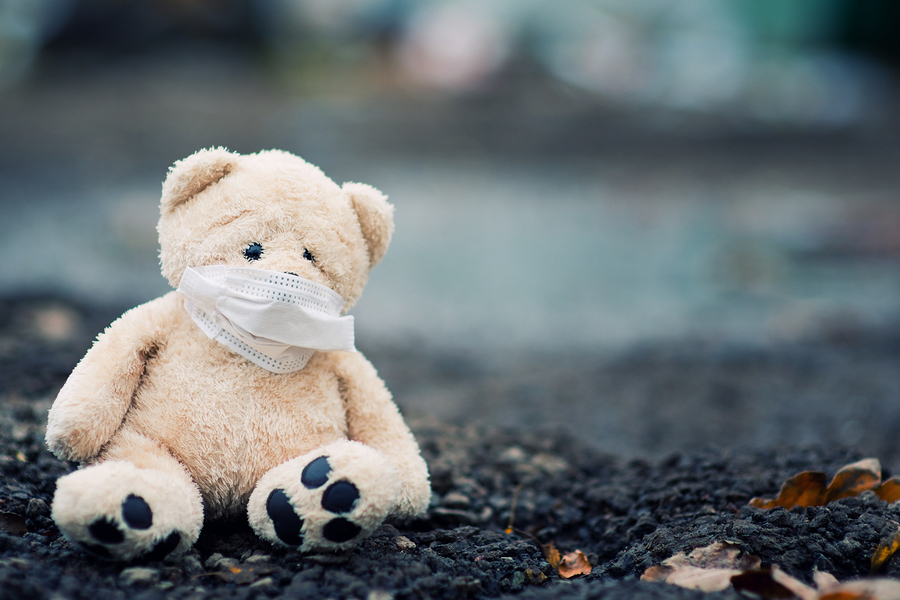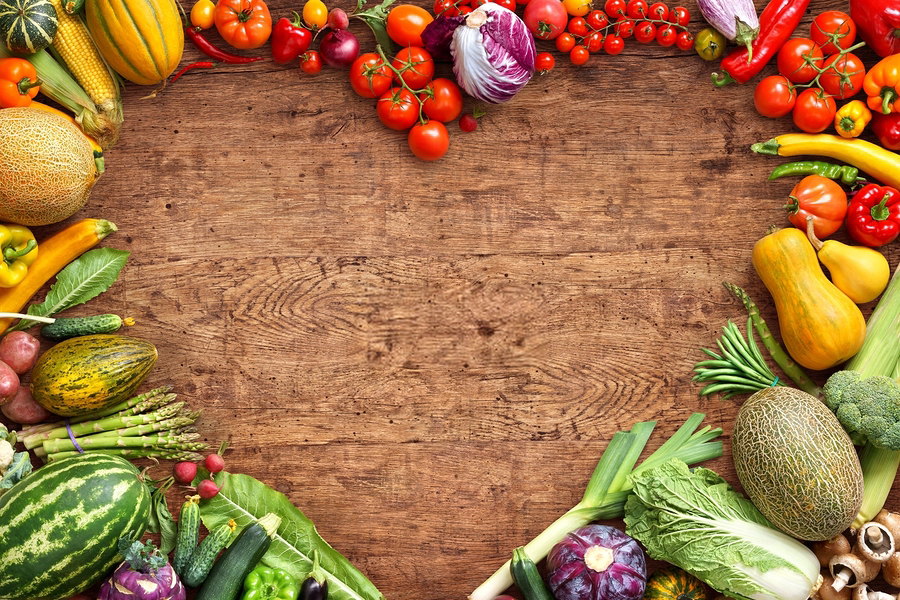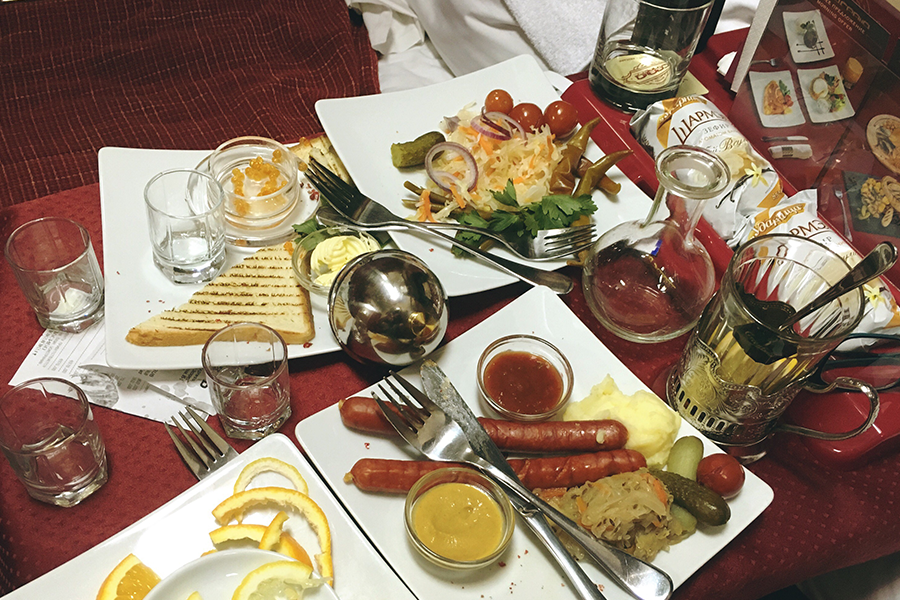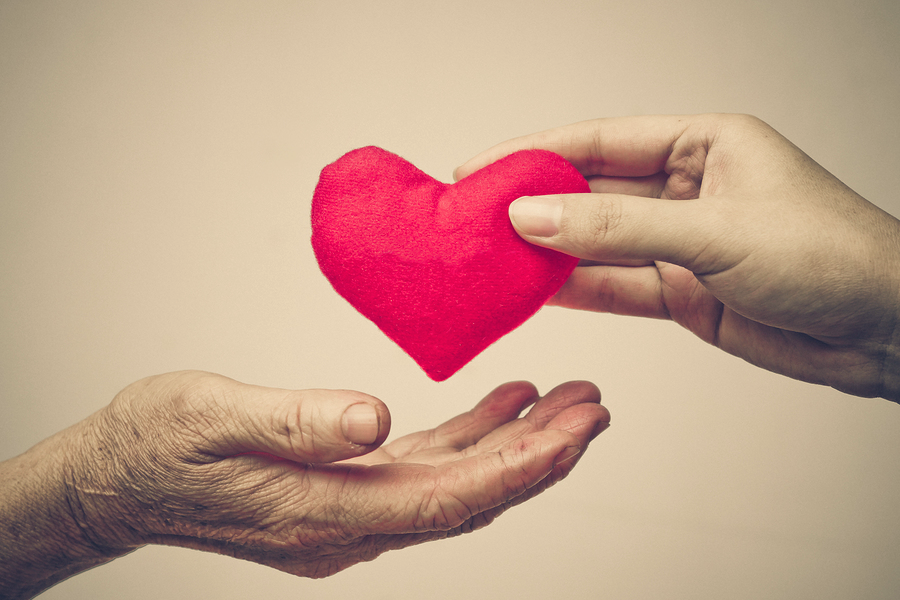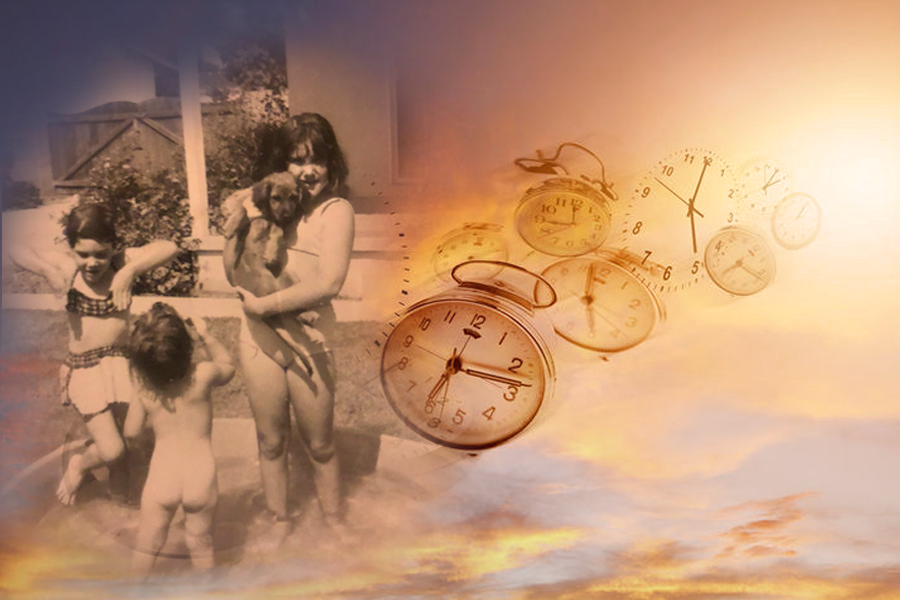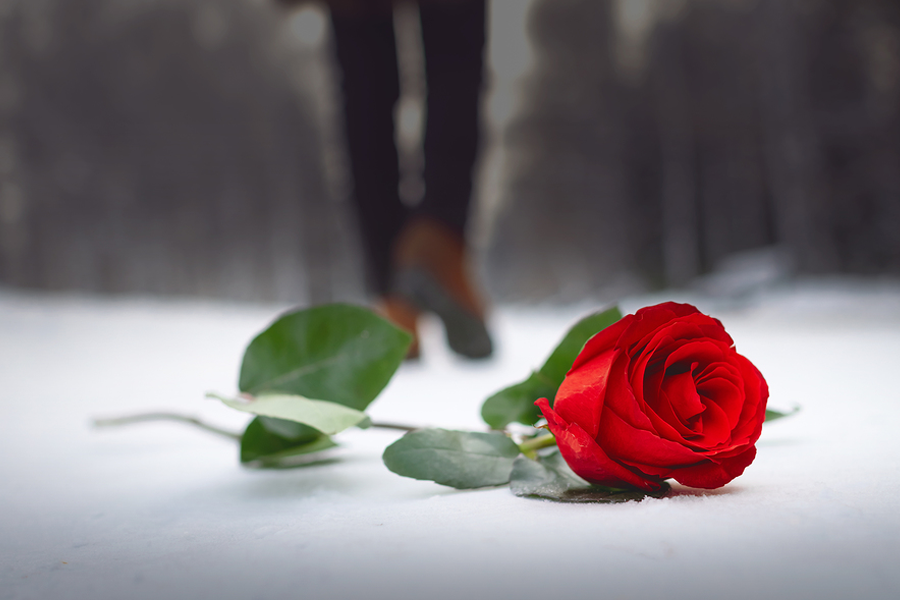A Recipe for Revision Pot Pie
By Catherine Palmer
You might think your personal essay is complete, but wait until you try this twist! I’m going to show (not tell) you how to deconstruct, reduce, remix, and shape your essay so that it feels like you’re writing a new one from scratch. Sure, that’s a lot of work, but think of it like this: roast chicken is perfectly fine, but revision pot pie is submittable!
Why leave well enough alone when you can do better? Tighter sentences, a more logical flow, and a pithier epiphany can only enhance the flavor of your story. If you’re tired of leftover clichés, revision pot pie is for you! I make a lot of this pot pie, so I should know.
To begin, I hole myself up, not bothering to shower or dress for several heart-wrenching days while I slice and dice what I thought was a perfectly fine essay. It’s so satisfying to take the meat off the bones, shred sentences, toss entire paragraphs, and turn my hard work into something unrecognizable on its way to being fantastic—or at least finished.
My family loves my revision pot pie, but honestly, I find the effort even more gratifying when I can share it with strangers. Here are some of my favorite revision pot pie tips:
- If you don’t have a solid draft on hand, start with a previously finished piece. My friend Joan likes to take an essay she’s already published and rip it to shreds.
- To make a crust of confessions especially flaky, open a bottle of wine, sit on the kitchen floor, and remember your childhood. This trick never fails to produce layer upon layer of trauma.
- Revision pot pie is best when it has had time to rest. Start long before your deadline so you can go back to it again and again. . .and again.
Recipe
PREP TIME: Your life up until this moment.
COOK TIME: Usually several days. Could be weeks. Or you might never finish
CUISINE: Personal essay
SERVES: Everyone who takes a bite
Ingredients
For the crust:
- 2 1/2 cups self-doubt
- 1 tablespoon therapy
- 1 teaspoon tears
- 1 cup cold hard truth, cut into bite sized pieces (makes them easier to swallow)
- A splash of cold water
- 1/2 cup regret (see recipe for substitute if GF*)
- 1 painful memory, lightly beaten
For the filling:
- 1 perfectly fine essay
- comments from 2 medium workshops
- 3 scenes, minced
- 3 cups (or more) new writing
- 1 heaping cup characterization
- 1/2 cup diced dialogue
- 4 heaping tablespoons of detail
- reflection to taste
(*Guilt Free)
Instructions
- To make the crust, pour tears, self-doubt, and years of therapy onto a blank page. Splash your face with cold water before folding in regret. You may substitute fear for regret if you are GF. Add cold hard truth and use a sharp red pencil to cut, cut, cut until the truth is all that remains. Form into a ball and chill.
- For the filling, pick through workshop comments thoughtfully, discarding duplicates and suggestions that make no sense. Toss the essay into your emotional blender and use the Track Changes attachment to blend comments until all scenes are totally minced. Pour off any defensiveness that may have surfaced.
- Place the minced scenes on the back burner, allowing the comments to simmer with your essay until the meat separates from the bones. Set the bones aside (you’ll need those later) and hack what remains to bits to create a meaty essay stew. Cool off, then skim the fat from the top.
- Over three cups of coffee, pull 2,000 additional words out of thin air. Add generous amounts of characterization, dialogue, and detail, and season with plenty of reflection. Don’t skimp on the reflection! Fold new writing into the essay stew and bring it to a simmer, stirring continuously to release the full flavor of each ingredient. This might take some time.
A quick note of caution: Making a revision pot pie is tedious, and you may grow impatient with the process. If it feels like it is becoming too difficult, resist the temptation to throw in the towel, wash a load of towels, shop on-line for new towels, or attempt towel origami. A short break to stretch or rehydrate can be helpful, but too much procrastination is the enemy of a successful (i.e., finished) revision pot pie. Stick to it! I promise it will be worth the effort. - When the filling is ready, it’s time to give your essay stew some structure. Adjust the bones you saved in Step 3 on a lightly floured surface and place the ball of truth you made in Step 1 at the center. Use a rolling pen to connect the two, shaping into a smooth narrative arc. Gently place the result into a 12-point, Times New Roman template.
- Trim any overhanging words, then pour the essay stew gently into the template, discarding any fatty bits. Some writers grow attached to these extra bits, but cut them out. You can save them—they might be just right for a quick and easy weeknight poem!
- Brush with a wash of painful memories and then let your revision pot pie bake for a few days.
- Repeat steps 4 to 8 as necessary.
I hope this recipe helps you rediscover the joy of slow editing like it has for me. I used to be a fast-edit junkie. It was easier to drive through the work of revising. But a diet of fast essays left me feeling bloated…yet still hungry an hour later. Now that I’m losing that stubborn first-draft weight, I feel more satisfied without the bulk.
Just imagine enjoying juicy details, crisp dialogue, and tender scene-setting all wrapped in a crust of flaky confessions, in the comfort of your own home. In fact, with this recipe for revision, you may never leave the house again!
About the Writer:
Catherine Palmer has been a stay-at-home mom, a working mom, and a single mom. She was a college drop-out, then in her 30s an adult night-school student who earned a BA in English and an MA in Marketing Communications, both with high honors. She spent three decades in corporate marketing before reinventing herself as a writer and a graduate student at Stonecoast MFA at the University of Southern Maine. She blogs about her midlife reinvention, becoming re-inspired, and life in Vermont at asmuchheart.com.

